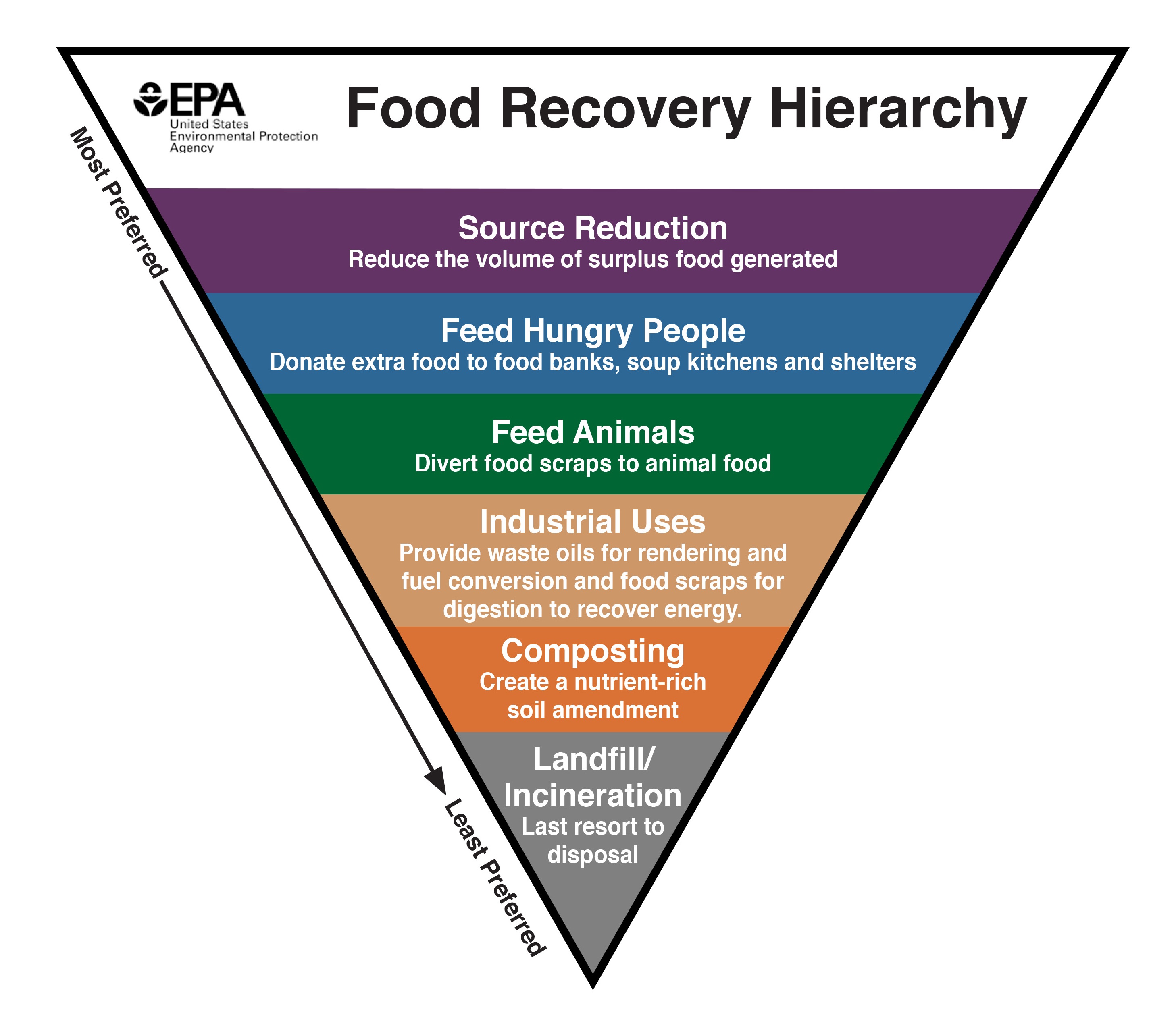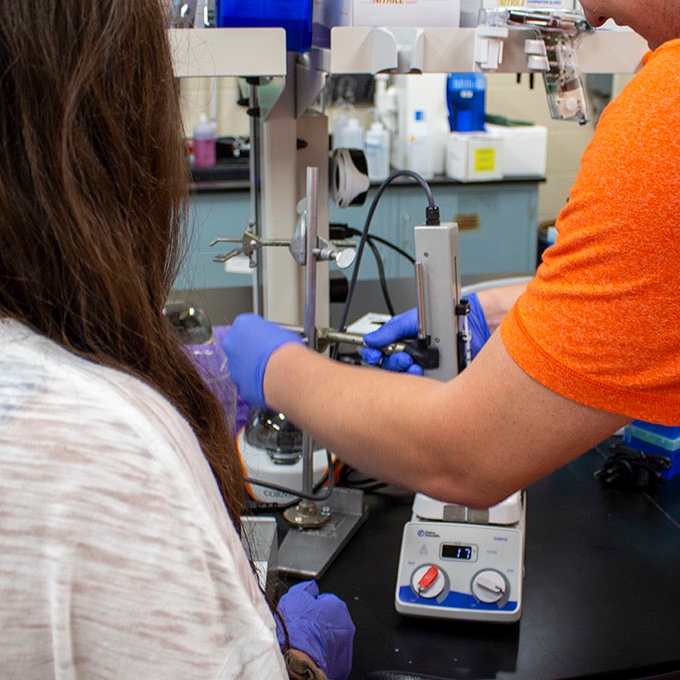Becoming More Sustainable: Food Waste Recovery
by Marilyn Hazlett
Clemson University’s Sonoco FRESH initiative, supported by a philanthropic gift from the Sonoco Foundation, is committed to engaging undergraduates in their research focus areas through Creative Inquiry. Students in the Food Waste Recovery Initiative Creative Inquiry project, mentored by Dave Vandeventer and Tom Jones from Clemson University Recycling Services, are focusing on one aspect of that footprint—what happens to food that is not consumed. To address this, students investigated food recovery in depth, compared practices at peer institutions and began developing a plan to implement more sustainable practices at Clemson.
Guided by the United States Environmental Protection Agency’s “Food Recovery Hierarchy,” the team engaged in all levels of food recovery, including witnessing and assisting in the food recovery process at university events. For example, on football game day they learned how food was distributed to concessions and suites before the game and saw what happened to leftover food after the game; some is donated, some is composted and some is sent to the landfill. They also volunteered at food pantries and visited a homeless shelter to learn how donated food is utilized. The most eye-opening experience was visiting Clemson’s organics recovery and compost facility—the Cherry Crossing Research Center—where most of Clemson’s leftover food is sent. These and other experiences exposed the students to various levels of the hierarchy. The students found that Clemson excels at composting but needs improvement in the upper levels of food recovery such as reduction and donation.
After a thorough assessment of the Clemson campus, the team examined food recovery at other colleges and universities in the United States. They compared each schools’ strengths and weaknesses to Clemson’s. Their results will inform development of more sustainable food recovery practices at Clemson.
The success of this team can be attributed to its multidisciplinary nature and the passion that all students have for this topic. The students represented four different majors in three colleges, all united by their interest and passion for recycling and food waste management. Emily White, a junior agribusiness major, said she has always been interested in food waste and food justice. Shemar Bryant, a junior management major, said the prevalence of food insecurity in his community inspired him to participate in this Creative Inquiry project. Bryant sees future opportunities for companies to develop sustainable solutions pertaining to food systems.

Source: U.S. EPA
Clemson is currently in the “composting” phase but this project seeks to move Clemson up the inverted pyramid.
CONTACT
Barbara J. Speziale
Director
(864)656-1550
bjspz@clemson.edu
Cora Allard-Keese
Assistant Director
(864)656-0721
callara@clemson.edu


